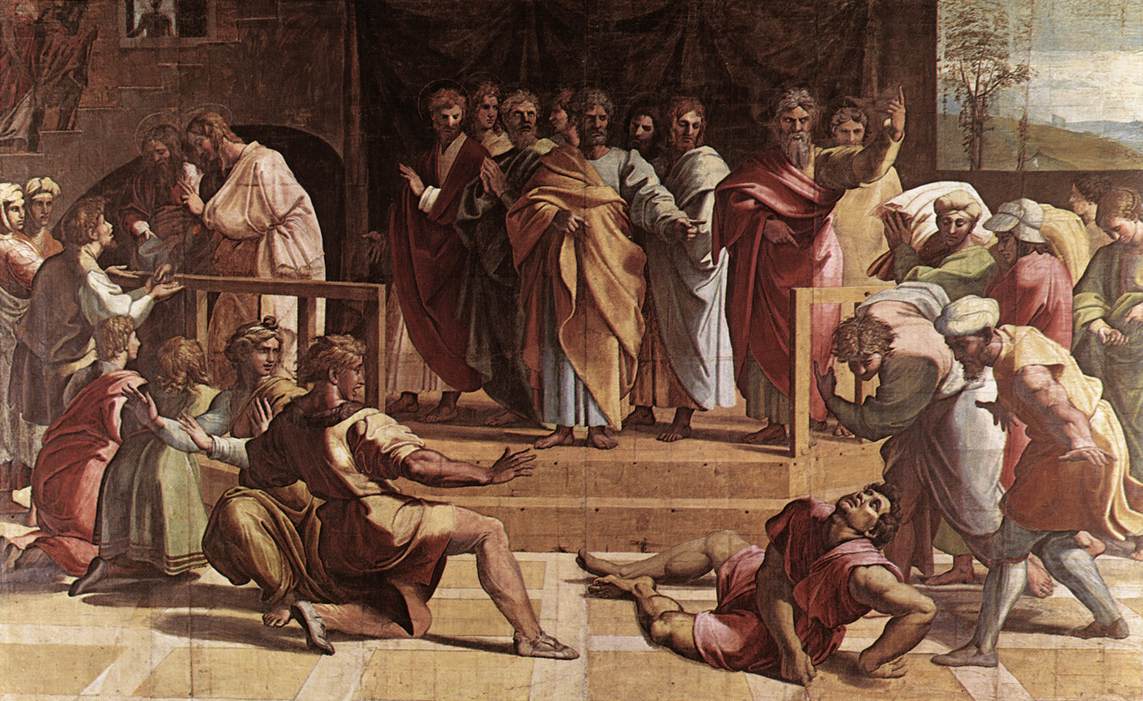This is a continuation of last week’s blog post. As we reflect on the legal and moral ramifications of the Supreme Court’s reversal of Roe v. Wade, we should be preparing for more conversations with others about the issue of abortion. This week I want to share with you some responses to a question about the death penalty. What you see below is a combination of several discussions with different people that have been edited together.
Question: As people of The Book, why are we against abortion and not against the death penalty? It seems that since both take life, we would oppose both:
Hello ______,
Thank you for your question. It is important that we think biblically about such things as Christians.
The difference between the child in the womb and the person on death row is justice. With regard to human law, an unborn baby has done nothing good or bad. However, the person who has been condemned to death has, in the U.S., been convicted by a jury of his or her peers of a crime that their state legislature has determined is worthy of death.
The Bible teaches in Genesis that there is a need for the death penalty in the service of justice. In Genesis 9, Moses is teaching, through narrative, about the source of the sacredness of human life. Specifically, it is the presence of the image of God in human beings which gives us worth that surpasses the rest of creation. Then Moses interrupts the flow and gives us a practical implication of the deep reality that he is teaching through narrative.
“Whoever sheds the blood of man, by man shall his blood be shed, for God made man in his own image. (Genesis 9:6 ESV)
Based on this passage, it is clear that there is at least one reason that a person loses the God-given right to life. Murder is specifically in view here in Gn 9:6 as one such reason. (Note: God grants rights, and God takes them away.) Therefore, we understand that justice demands the death penalty in the case of murder.
Now, there is much more to say about this. There is a principle of intentionality. The Bible makes distinctions between murder and unintentional manslaughter. Then there is also the problem of humans lying. So no charge should be accepted except on the word of more than one witness. This brings us back to justice. No one should intentionally take the life of a human baby because the baby has not done anything that merits the death penalty.
There is a biblical principle that human laws should protect human life except when that person has intentionally taken the life of another human being without cause. (There are other reasons also, and we haven’t even considered self-defense. I am only establishing a premise here.)
Again, there is much more to say. The main thing that I want to show is that there is a biblical distinction between a human being who has not done anything deserving of death and a human being who has done something deserving of death.
Hello _______,
First, there are many considerations when it comes to the death penalty. I am not attempting a full accounting of the death penalty. My aim is to establish the essential difference between abortion and the death penalty. Certainly, the death penalty has been abused throughout history. In the case of a civil magistrate abusing his power of the sword and putting to death those who have done nothing deserving death, then it is in fact similar to the abortion issue. As Christians, we should oppose such abuses.
Second, you are absolutely right when you say that we must be clear about when a fertilized egg becomes a person with God-given rights. That is the most important part of this discussion.
First, a note of clarity. It is not really a question of when it is a life, it cannot be anything but life since, if it were not alive, it would not have the potential to grow and develop into an adult. It is also not a question of whether or not it is human. No human couple has ever given birth to non-human offspring. It is by definition human and living from the moment of conception.
The question of personhood is a little different. There is a popular notion that our consciousness and personal thought lives are somehow central to our existence. However, the biblical perspective is that we are embodied spiritual beings. This is different than animals which are not spiritual and different from angels who are not normally embodied.
One very strong scriptural evidence that we human beings are fully embodied spiritual persons from conception is the account in the book of Luke where Mary the mother of Jesus went to visit her cousin Elizabeth.
In that account, Elizabeth is around 6 months along and Mary has recently learned of her pregnancy. (Presumably, Mary is less than four weeks into her pregnancy.) When Mary approaches Elizabeth, Elizabeth’s baby leaps in her womb in response to the presence of the pre-born Jesus. This is remarkable because this passage only makes sense if Jesus is already fully himself as fully God and fully man in the very early days of Mary’s pregnancy. Not only that, but John, who is also pre-born and likely less than 24 weeks gestation responds to the Lord in a spiritual way. I count this as very strong evidence for the full personhood of pre-born babies from the moment of conception.
Scientifically, we have learned since 1973 when Roe was handed down that, genetically speaking, at conception there is a unique human genetic code that has never existed before and will never exist again created. Though no one should try to isolate personhood to DNA, it is important to note that personhood cannot be isolated to any one constituent part of who we are as human beings.
If we say that mental capacity is what makes us a person, then we have created a category in which some adults with a severe mental disability may be killed without recourse.
If we say that dependence on the mother is what makes a pre-born baby a non-person, then we again create a category of living humans that has been stripped of personhood due to their level of dependence. This would again imply that we should be allowed to dispose of anyone with severe disability.
Is it our size that makes us persons? Is it our location that makes us persons? Is it our developmental growth? These are all arbitrary measures for deciding personhood. In every case, it is fruitless to attempt to distill humanity down to an essential part that is the core of personhood. A human being is made in the image of God and is a living human person when the two become one flesh and conceive.
I am arguing that, after examination, we can see that full human personhood belongs to every zygote, fetus, and baby in the womb. This is the reason we are compelled by both compassion and biblical command to protect this life from murder. It is a matter of justice.
Any law that sanctions the killing of human beings based on some attribute such as development, size, dependence, or anything else is an unjust law, because development, size, and dependence do not remove the status of image-bearer. Such laws are evil in the sight of God. On the other hand, because of this same principle of the precious nature of human life as image-bearers, that same justice demands that someone who has been convicted of murder deserves to die by human hands.
May the Lord grant grace to you as you consider these things.
In Christ Alone,
Pastor Charles



